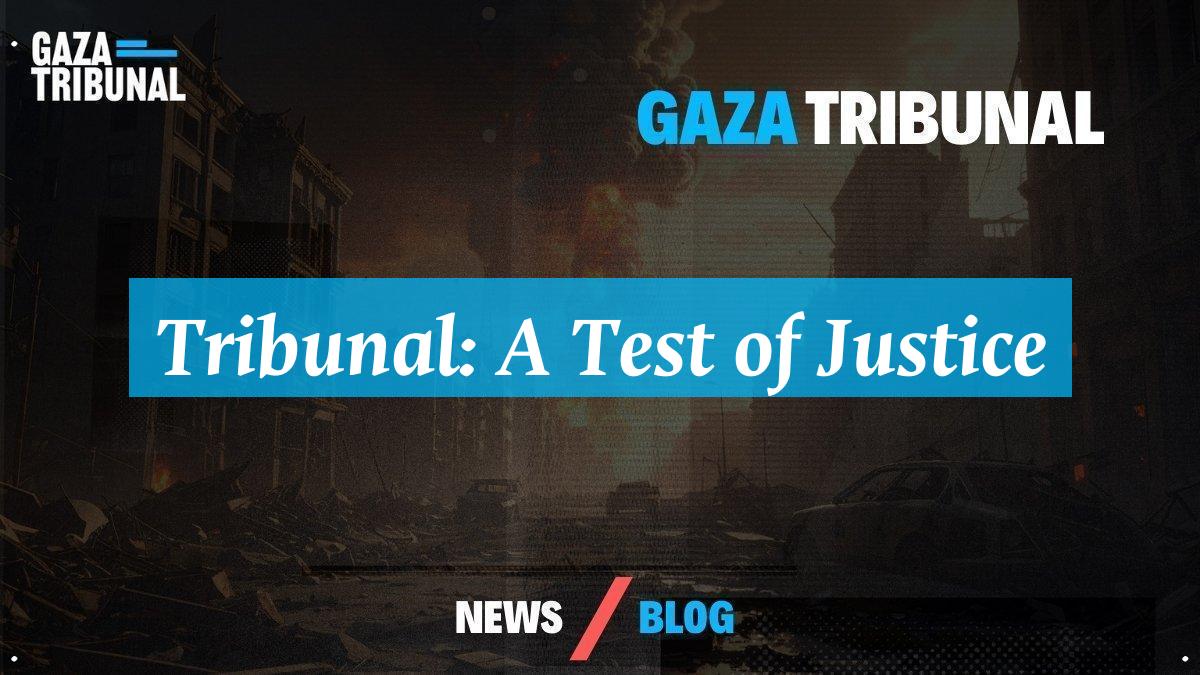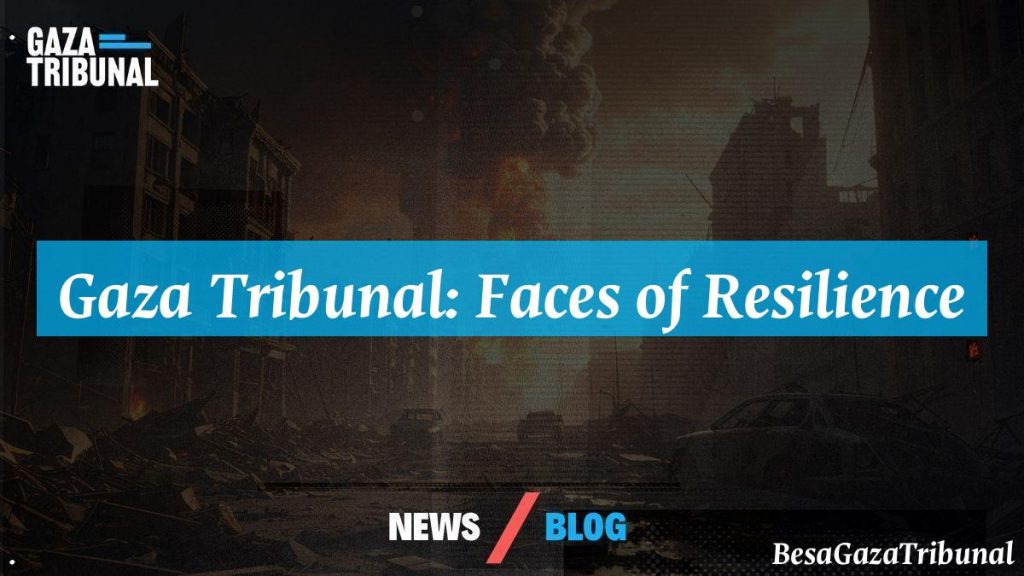In the midst of relentless turmoil, stories resonate that provoke deep introspection. Dr. Rinad Al-Majdalawi’s journey from Gaza embodies a tapestry woven with threads of loss, resilience, and haunting memory. Indeed, her experience speaks to a broader human saga where conflict extracts a toll far beyond the tangible. As we reflect on her narrative, it inevitably leads us to the profound realization that the Gaza Justice Tribunal is not just an idea—it embodies the hope held by many seeking accountability. Consider, if you will, the unsettling possibility that it compels us to recognize that healing is a journey fraught with complexities. Thus, what remains is a critical question: how do we truly honor those who suffer, yet keep the memory alive for generations to come?
What further weighs on the conscience is the stark reality that conflict doesn’t merely claim lives; it fractures communities and families, leaving scars that don’t easily heal. The Gaza Justice Tribunal stands at the intersection of justice and humanity, aiming to address these persistent wounds. For Dr. Al-Majdalawi and countless others, simply existing in this duality of worlds can be a suffocating experience. Each day brings the burden of navigating two realities; one rooted in painful memories and another striving for peace. This clash, as already underscored above, shapes one’s identity, leading to an ever-present longing for home. As we delve into this narrative, it broadens not just our understanding but also fuels a collective call to action for a more just future.
The Reality of Gaza: Loss and Devastation

War paints a stark picture, one that echoes through the streets of Gaza. When you listen to Dr. Al-Majdalawi, you hear more than just her words. “We have lost many lives, many homes,” she shares, illuminating the collective trauma that grips the region. Her family’s home suffered destruction just days before a fragile truce. This moment shattered their world, leaving an emptiness that words can barely capture. Imagine losing over 90 family members! That’s not merely a statistic; it’s a generation wiped away, leaving scars that will never heal. Each bomb that fell, each life that was taken, carved deep wounds into the hearts of countless families. We must acknowledge that the physical destruction is visible, yet the emotional devastation runs deeper, entwining itself with the identity of the people. This isn’t just about what remains; it’s about what can never be rebuilt.
As we navigate through this, the impact of such loss becomes clear. The memories and stories of those lost linger in the air, haunting survivors. Dr. Al-Majdalawi’s narrative isn’t isolated; it resonates with many who carry similar burdens. The pain of losing loved ones doesn’t fade with time; it transforms, becoming a part of who they are. We see how war doesn’t merely affect places—it alters the essence of communities. The scars of Gaza remind us that healing requires more than just rebuilding structures; it demands a reconnection with lost histories and identities. This story, while deeply personal, serves as a powerful reminder that the effects of war ripple through generations. For more information, refer to the source here.
The Diaspora of Gazans: Living in Two Worlds
Dr. Al-Majdalawi’s experience reveals another layer of pain: living between two worlds. “You’re living here but not living,” she expresses, perfectly encapsulating the struggle of expatriates. This dual existence creates a constant tension, a push and pull between the life they’ve built and the one they can’t leave behind. The weight of Gaza rests heavily on their shoulders, demanding attention even in distant lands. You can’t just switch off the news; it follows you everywhere. “You have to follow the news while you’re running on transportation, at work, at university,” she explains. Each update brings a mix of hope and dread. Every call, every message, can shatter your world again. It’s a relentless cycle of anticipation, a waiting game that takes its toll.
Expatriates often find themselves in a state of limbo, torn between two realities. They build lives in new places while their hearts remain tethered to Gaza. This internal conflict can be exhausting. The struggle to maintain connections with loved ones back home adds another layer of complexity. They live with the knowledge that their families are in peril, and that reality weighs heavily on their minds. Yet, amidst this turmoil, there’s resilience. Many find ways to support their communities from afar, raising awareness and advocating for justice. This duality of existence may seem burdensome, but it also fosters a sense of solidarity. Together, they strive for change, for a future where their loved ones can live without fear.
Gaza: Struggling Despite International Law
Dr. Al-Majdalawi’s disillusionment with international law highlights a painful reality. She once believed these institutions would uphold justice. However, her experiences shattered that hope. “I completely lost faith in the specialization,” she admits, pointing to the failures of UN resolutions to protect the innocent. It’s hard to ignore the ongoing atrocities that persist despite international attention. The resolutions, meant to bring accountability, often remain symbolic, lacking real power. Israel continues its actions without facing consequences, leaving many questioning the integrity of these systems. It’s frustrating to see laws designed to protect becoming tools for the powerful. This isn’t merely an academic concern; it reflects a deep emotional reckoning for those affected.
As we reflect on this, the need for reform becomes evident. The institutions meant to safeguard human rights must evolve to meet the challenges of today. They should serve the oppressed, not just the privileged. Yet, the path to justice feels daunting. Many wonder if change is possible. The struggle may seem endless, but it’s crucial to keep pushing for accountability. Dr. Al-Majdalawi’s voice serves as a beacon, urging us to confront these uncomfortable truths. We can’t remain passive. Instead, we must advocate for a system that genuinely protects those in need. Only through collective action can we hope to reshape the narrative and hold those in power accountable.
Role of Technology in Genocide
Technology plays a complex role in modern warfare, often amplifying its horrors. Dr. Al-Majdalawi points to AI systems like Habsora and Lavender, which target individuals based on data analytics. “These systems don’t care about the circumstances of the targeted person,” she warns, highlighting the ethical dilemmas they present. As technology advances, warfare becomes more detached from human judgment. The consequences often fall on innocent families, caught in the crossfire of algorithms. The precision of these systems raises serious questions about morality and humanity. What happens when warfare becomes a numbers game? This shift strips away the compassion and context that should guide such actions.
We must address the implications of this technological evolution. As society leans on AI for decision-making, we risk losing sight of the human element. The reality is stark: technology can create a chasm between the act of violence and its consequences. It’s crucial to question how we use these tools. Are we shaping a future that prioritizes efficiency over empathy? As we move forward, we must ensure that technology serves humanity, not the other way around. The conversation around AI and warfare needs urgency. Together, we can advocate for ethical standards that prioritize human lives. Let’s remember: the future is in our hands! Thank you for engaging with these critical issues. Each voice matters in this ongoing struggle for justice.
Gaza News


